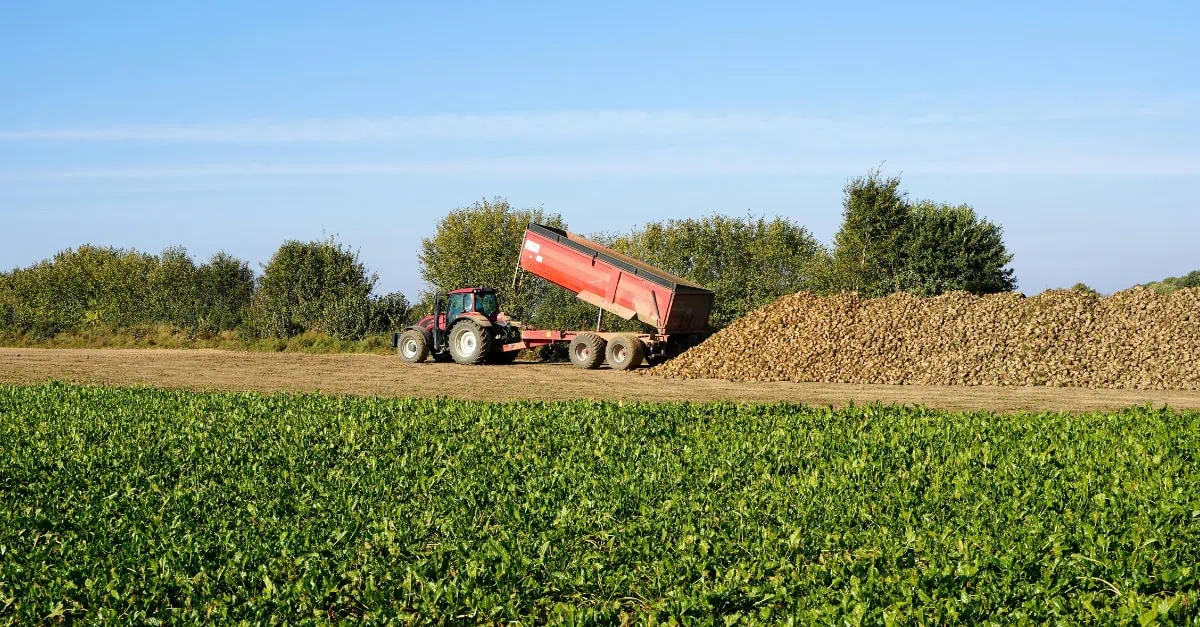European sugar producers are implementing emergency area reductions for the 2026 crop as prices fall to €425/tonne and structural challenges threaten the industry’s viability.
Suedzucker has announced it will pay growers a €10/tonne premium on all contracted beet grown in 2027 if they reduce planted area for the 2026 season. The initiative, coordinated with South German growers associations, comes at an exceptionally late stage – beet seed has already been ordered and planting decisions made.
Other major processors are following suit. Cosun in the Netherlands is cutting area to 90% of 2025 levels, while Polish Sugar has announced a 10% reduction. Polish processors are also reducing beet prices to between €28 and €32 per tonne before coupled income support.
The timing reflects the severity of price pressure facing the industry. Ex-works beet belt prices have dropped to €425/tonne basis bulk, squeezing processor margins and raising questions about long-term viability.
French growers face additional challenges from virus yellows, which has devastated yields in key regions. In Seine-et-Marne, some farms are achieving only 74 tonnes per hectare against a breakeven requirement of 80 tonnes, with production costs estimated at €2,900 per hectare. The CGB head reported yields of 57 tonnes on his farm while a neighbour achieved 82 tonnes in Ile-de-France, highlighting the disease’s uneven impact.
France’s inability to use neonicotinoids still approved in most other EU countries has intensified grower frustration. The country banned these pesticides to meet environmental standards but has not found political will to reintroduce them despite mounting crop losses.
Industry groups including CIBE, CEFS, EFFAT and ACP/LDC countries have sent a joint letter to the European Commission calling for suspension of Inward Processing Relief imports of raw sugar under article 195 of the Common Market Organisation. The letter notes that raw sugar imported under IPR accounted for 73% of total raw sugar refining imports from October 2024 to August 2025.
The current EU sugar CMO is not coherent and not fit for purpose. The Commission needs to formulate a new CMO as a matter of urgency. The existing regulations combine subsidies, coupled income support and world price imports under IPR rules – creating a dysfunctional hybrid model that is unique in the world of sugar. No other country would adopt such a policy if it wanted to support its industry. Vietnam imposed anti-dumping duties on Thai sugar after understanding the threat to its domestic market.
For any agribusiness to succeed it needs strong government support, a stable market environment and conditions that allow for long-term planning and investment. Currently none of these elements are present in the European sugar market.
The 2025 harvest has benefitted from exceptionally favorable weather conditions. Spring proved ideal with no frost, and harvesting conditions remained relatively frost-free. Beet quality in the Netherlands has been very good with average sugar content recorded at 17.3°. Poland is expected to produce 2.35 million tonnes despite heavy rain making field access more challenging in recent weeks.
However, growers were exceptionally lucky with this year’s conditions. The chances of repeating such favorable weather appear slim given increasing climate volatility.
The area reductions raise several concerns for the industry. Implementing cuts for only one season could create a boom-bust cycle. Farmers have limited alternatives since oilseed rape and winter cereals have already been planted, leaving options like maize, spring wheat or potatoes – only the latter providing a break crop. Reduced volumes will likely increase processing costs per tonne.
The initiatives represent the last chance saloon for an industry facing structural challenges from policy dysfunction, disease pressure and price volatility.
For the sull European sugar market analysis, visit: https://app.vespertool.com/market-analysis/2448
